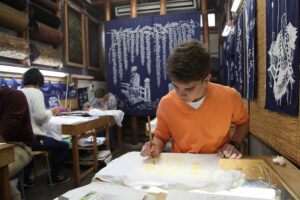Censorship in Hong Kong — From Internet to Academics
Although it falls under the Chinese administrative region, the city of Hong Kong operates quite differently than China due to the “one country, two systems” policy. Such disparity in operations, ranging from internet access to the education system, led the city to have an uncommon relationship with the mainland. However, the policy seems to be nearing its expiration date, and that deeply worries Hong Kong citizens who are not used to China’s strict censorship.
The Great Firewall

China’s strict internet censorship is known as the Great Firewall, a wordplay of the famous Great Wall of China. The firewall blocks access to a number of major Western websites, such as Google and YouTube. However, it is not just the online destinations of its citizens the Chinese government tightly controls; content on the allowed websites is also constantly monitored. Specifically, any negative information about the government, be it criticism of the regime or facts about the Tiananmen Square protests, is not permitted. For instance, content on Baidu and Youku — the Chinese version of Google and YouTube, respectively — are highly censored even though both companies are based in China.
If the content control of a website is deemed difficult, the government conveniently bans the website for arbitrary reasons, including but not limited to “harmful information” or “disrupting online communication order.” The most recent shut down of a major online platform was that of the app Clubhouse in early 2021 after a large number of users in China discussed detention camps located in Xinjiang province.
The people of Hong Kong, on the other hand, have enjoyed more internet freedom than the mainlanders. The list of blocked websites in the city has been significantly shorter than that of the mainland, allowing Hongkongers to search on Google and watch YouTube videos.
Freedom of Speech
Along with internet freedom, citizens of Hong Kong have also enjoyed more freedom of speech. People could leave critical comments online about the government without having serious concerns about their safety. However, the situation took a quick turn for the worse in 2019 when an amendment to the existing extradition law was proposed.

In detail, the original law explicitly states that the Mutual Legal Assistance (MLA) agreements for extraditing criminals are applicable to governments outside Hong Kong, but exclude “the government of any other part of the People’s Republic of China.” On the contrary, the proposed amendment would have allowed the city government to extradite criminal suspects to any country, including mainland China.
The city’s citizens interpreted, and rightly so, the bill as an attempt to crack down on dissidents in Hong Kong. In order to protect the city’s autonomy and their freedom of speech, the people of Hong Kong started the 2019-20 Hong Kong protests, one of the largest series of demonstrations in Hong Kong’s history. After 20 weeks of protests, the city legislature eventually withdrew the bill.
Unfortunately, however, Beijing came up with another—in fact, stronger—way to control the city and limit Hongkongers’ freedom of speech. The national security law (NSL) provides the government with legal grounds for surveillance and criminalization based on a vague and broad definition of acts of “secession,” “subversion,” “terrorism,” and “collusion with foreign forces.”
Hong Kong’s media has already suffered under the NSL; local newsrooms were raided and a foreign journalist has been forced out by visa denial. The regime’s crackdown on media freedom started with shutting down Apple Daily in June 2021. As it was the largest pro-democracy newspaper company in the city, trusted by many as a reliable media institute, its closure sent a chilling message to Hong Kong’s press.
Yuen Chan, a veteran journalist who now lectures at the City, University of London says, “Press freedom has been diminishing over a number of years, but since 2020 especially that has been turbocharged.”

Academic Freedom
Witnessing the government’s oppression of press freedom, the academic field in Hong Kong also sees the growing “climate of fear.”
The Education Bureau of Hong Kong quickly followed Beijing’s order to instill more “patriotism” in students, sending instructions to educational institutions across the city. The guideline says the city government will take necessary measures to regulate “matters concerning national security, including those relating to school, universities, and social organizations,” citing parts of the NSL. The instructions also explicitly state that one of the fundamental goals of national security education is to develop an affection for the Chinese people and the nation.
Upon receiving the instructions, some institutions started to censor their faculties. Agence France-Presse reported that the University of Hong Kong, the city’s highest-ranked university, sent emails to its employees in 2021 telling them to “remain neutral” in their lectures and “be mindful of the language [they] use.” The school went as far as to warn its faculties that it will show “zero-tolerance” against those who bring personal political views into class.
A few months later in the same year, Lingnan University released two adjunct professors from contract without providing a specific reason. As the two professors, Hui Bo-keung and Lo Wing-sang, were both active supporters of the 2019-20 Hong Kong protests, many suspected the reason for their termination to be political.
While the regime’s attempt to tighten its grip on Hong Kong’s education may have been working, it came with a heavy price; faculties are leaving the city looking for better academic freedom. Carsten Holz, an economics professor at the Hong Kong University of Science & Technology (HKUST), wrote in his article that his colleagues have already started to leave the city fearing censorship or retaliation.
However, faculties escaping the city is not the only problem Beijing’s censorship has incited — students may also be leaving. Based on the statistics provided by the city’s University Grants Committee (UGC), the number of full-time undergraduate students who discontinued their studies has increased by 433 over one academic year from 2019-20 to 2020-21. Although the pandemic could have contributed to the increase, its impact has likely been marginal with the city successfully containing the spread of the virus to mostly below 100 new cases per day until early this year.
Hong Kong’s Future
With the expiration date of the “one country, two systems” policy closing in on the city, the students and people of Hong Kong have resiliently fought back the regime’s attempt to gain further control. Although the 2019-20 Hong Kong protests succeeded in removing the extradition bill, they could not push back Beijing’s looming control entirely. As of early 2022, more than 150 people have been arrested under the NSL, many of them for speech crimes. In addition to the NSL, Covid-19 has given the Chinese government another convenient excuse to control Hong Kong citizens and violate their human rights. The future of Hong Kong’s internet freedom, freedom of speech, and academic freedom may appear gloomy. Yet, the will of the people has always prevailed, lasting longer than any regime in the history of mankind. May it be the case for Hong Kong.
Read more: Problems With Teaching Chinese Politics



